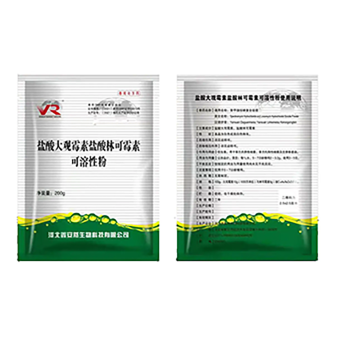- Afrikaans
- Albanian
- Amharic
- Arabic
- Armenian
- Azerbaijani
- Basque
- Belarusian
- Bengali
- Bosnian
- Bulgarian
- Catalan
- Cebuano
- Corsican
- Croatian
- Czech
- Danish
- Dutch
- English
- Esperanto
- Estonian
- Finnish
- French
- Frisian
- Galician
- Georgian
- German
- Greek
- Gujarati
- Haitian Creole
- hausa
- hawaiian
- Hebrew
- Hindi
- Miao
- Hungarian
- Icelandic
- igbo
- Indonesian
- irish
- Italian
- Japanese
- Javanese
- Kannada
- kazakh
- Khmer
- Rwandese
- Korean
- Kurdish
- Kyrgyz
- Lao
- Latin
- Latvian
- Lithuanian
- Luxembourgish
- Macedonian
- Malgashi
- Malay
- Malayalam
- Maltese
- Maori
- Marathi
- Mongolian
- Myanmar
- Nepali
- Norwegian
- Norwegian
- Occitan
- Pashto
- Persian
- Polish
- Portuguese
- Punjabi
- Romanian
- Russian
- Samoan
- Scottish Gaelic
- Serbian
- Sesotho
- Shona
- Sindhi
- Sinhala
- Slovak
- Slovenian
- Somali
- Spanish
- Sundanese
- Swahili
- Swedish
- Tagalog
- Tajik
- Tamil
- Tatar
- Telugu
- Thai
- Turkish
- Turkmen
- Ukrainian
- Urdu
- Uighur
- Uzbek
- Vietnamese
- Welsh
- Bantu
- Yiddish
- Yoruba
- Zulu
12월 . 17, 2024 15:20 Back to list
Injectable Ivermectin for Poultry Health and Parasite Control in Chickens
Injectable Ivermectin for Chickens An Overview
Ivermectin is a well-known antiparasitic agent that has gained popularity in veterinary medicine, particularly for its efficacy against a variety of internal and external parasites. In recent years, the use of injectable ivermectin for chickens has garnered attention among poultry farmers and veterinarians. This article explores the use, benefits, and considerations of administering injectable ivermectin to chickens.
Understanding Ivermectin
Ivermectin belongs to the avermectin class of drugs, which are derived from the soil bacterium *Streptomyces avermitilis*. This compound is predominantly used in the treatment of parasitic infections in both humans and animals. Its mechanism of action involves binding to glutamate-gated chloride channels and other ion channels found in the nervous system and muscle cells of parasites, leading to paralysis and death. Ivermectin is particularly effective against a broad spectrum of parasitic organisms, including nematodes, ectoparasites, and certain protozoa.
The Rationale for Use in Chickens
Poultry farming can be significantly affected by parasitic infestations, which can lead to reduced growth rates, lower egg production, and increased mortality. Common parasites affecting chickens include roundworms, mites, and lice. Traditionally, the management of these parasites has relied on oral formulations or topical treatments; however, injectable ivermectin offers an alternative that may provide more consistent and effective results.
One of the primary advantages of injectable ivermectin is its fast-acting nature. The injectable route enables the drug to rapidly enter the bloodstream, resulting in a quicker onset of action compared to oral dosing. This can be particularly beneficial in situations where rapid intervention is necessary to control an outbreak of parasites.
Benefits of Injectable Ivermectin
1. Rapid Onset of Action As mentioned, the injectable form allows for quick delivery, which is essential in acute cases of infestation. 2. Accurate Dosage Injectable formulations ensure that each bird receives an accurate and consistent dosage, reducing the risk of underdosing (which can occur with oral treatments when birds do not consume the medicine) or overdosing.
injectable ivermectin for chickens

4. Ease of Administration For some poultry producers, the injectable method may be easier to manage than multiple doses of oral medications, especially in large flocks.
5. Effective Against a Variety of Parasites Injectable ivermectin can combat a wide range of parasitic infections, making it a versatile tool in parasite management.
Considerations and Best Practices
While injectable ivermectin offers various benefits, it is essential for poultry farmers to consider several factors before administration
- Dosage and Administration The proper dosage must be determined based on the weight of each chicken. Veterinarians commonly recommend a dosage of approximately 0.2 mg to 0.5 mg per kg of body weight, administered subcutaneously or intramuscularly.
- Withdrawal Times For meat-producing chickens, understanding withdrawal times is crucial to avoid potential residues in the meat. Farmers should consult guidelines or veterinarians to ensure compliance with local regulations concerning meat and egg production.
- Monitoring and Follow-Up After administration, it is important to monitor the flock for any adverse reactions or signs of continued parasitic infestation. Follow-up treatments may be necessary, depending on the severity of the initial infestation.
- Integration into a Management Plan Injectable ivermectin should be part of a broader integrated parasite management plan that includes good hygiene practices, proper nutrition, and regular health monitoring.
Conclusion
Injectable ivermectin presents a promising option for the management of parasitic infections in chickens. Its rapid action, accurate dosage, and broad spectrum of effectiveness make it a valuable addition to the poultry farmer's toolkit. As with any medication, it is crucial to use it judiciously and in accordance with veterinary guidance to ensure the health and productivity of the flock. With appropriate management and understanding, injectable ivermectin can contribute significantly to the welfare of chickens and the success of poultry operations.
-
Guide to Oxytetracycline Injection
NewsMar.27,2025
-
Guide to Colistin Sulphate
NewsMar.27,2025
-
Gentamicin Sulfate: Uses, Price, And Key Information
NewsMar.27,2025
-
Enrofloxacin Injection: Uses, Price, And Supplier Information
NewsMar.27,2025
-
Dexamethasone Sodium Phosphate Injection: Uses, Price, And Key Information
NewsMar.27,2025
-
Albendazole Tablet: Uses, Dosage, Cost, And Key Information
NewsMar.27,2025













